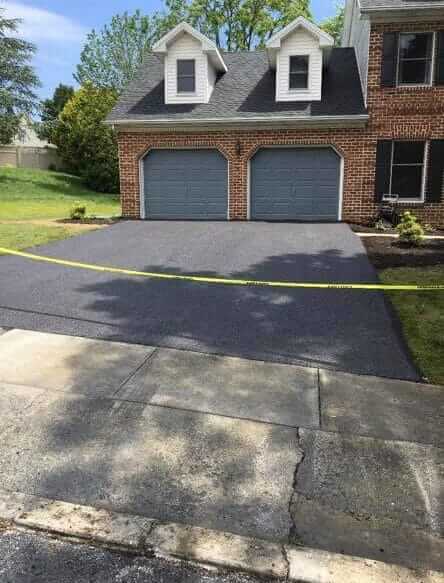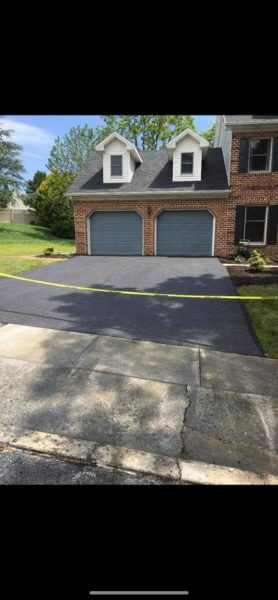Benefits Of Recycled Asphalt
When paving your home, you want to use quality materials that will last for a long time. Asphalt is one of the most sought after and trusted construction materials. It is durable, long-lasting, and withstands the test of time. But, even though it is long-lasting, it’ll start cracking then break after years of use. Fortunately, its life doesn’t end there. It’s why many industry professionals are reusing and recycling asphalt for both large and small projects. But is recycled asphalt best for you? Today, we will explain everything you need to know about this material to help you make an informed decision.
What Is Recycled Asphalt?
Broken or cracked asphalt is excavated frequently from parking lots, roads, driveways, and such areas. It may also be excavated when a building is demolished or in construction sites. Once the excavation is done, the material can either go to landfills or recycling plants.
Not long ago, individuals discarded asphalt in dumping sites. But, unfortunately, since this material is non-biodegradable, it won’t break down or decompose with time which leads to the accumulation of debris in landfills. Additionally, the material will simply be wasted because creating virgin asphalt will require tapping into more resources. That’s why more industries are turning to asphalt recycling as a solution to this.
Rather than being dumped, old and broken asphalt is delivered to recycling facilities and plants where it is crushed down to specified aggregate sizes. Then it’s screened to remove unwanted debris/residue. This process yields a quality asphalt coated product that can be used as an inexpensive and environmentally friendly option compared to virgin asphalt. Fewer raw materials are needed to produce recycled asphalt and also as the materials are lightweight, transporting them is less expensive.
Why Use Recycled Asphalt?
Recycling asphalt isn’t difficult. In fact, it’s among commonly recycled materials in the U.S. Statistics by the Federal Highway Administration revealed that approximately 81% of the asphalt removed from roads is recycled. Now, there are many benefits of using recycled asphalt both to consumers and companies.
Environmental Benefits
- Recycling reduces the amount of oil needed which can reduce oil dependence.
- Since the recycled material isn’t sent to landfills it saves on construction material.
- Recycling helps conserve natural resources since it uses mineral particles made during asphalt pavement.
Economic Benefits
- Taxpayers save money by recycling asphalt
- Contractors also save on transportation, energy and material costs
Other benefits of using recycled asphalt include reduce the demand for new asphalt that’s more expensive, improved asphalt stiffness, and reduces the likelihood of cracking when used on pavements.
Recycled Asphalt Uses
After recycling, asphalt can be used in various projects including:
- As a base or sub-base material for landscaping and construction projects
- Driveway surfacing since it offers an attractive option with excellent drainage properties compared to traditional solutions.
- Creating walking or running paths as well as biking trails
How Much Does Recycled Asphalt Cost?
Used asphalt is cheaper than new asphalt. Plus, recycling isn’t difficult and it is also inexpensive. For consumers, this is a good reason why you may consider using recycled asphalt.
The cost of recycled asphalt depends on your geographic location as well as how much material was used in the mixture. However, the average price ranges from $7-$60 per ton. Paving a standard-size double driveway can cost approximately $55-$460 for asphalt millings. But, this price doesn’t include labor and material. Asphalt millings are sold per tons. And one ton can cover up to 80 square feet. They can sometimes be sold by the yard. The cost per yard ranges from $14 to $120.
Note that even though asphalt millings are sold by the yard or ton, you’ll need to determine the square footage of where you want it to be placed to determine the exact cost. For example, most residential driveways measure 608 square feet approximately. To cover this area, one will need to buy 7.6 tons of recycled asphalt.
You should research a manufacturer and supplier in your area. Ensure that they have a good reputation for producing quality materials. It’s also wise that you get quotes from different companies to choose the best deal.
Final Thoughts
Recycled asphalt is durable and cheaper than new asphalt. But, it doesn’t retain color. If you’re thinking of using this material ensure that you get a professional to do the job.


